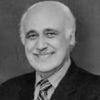Blood: The sixth river of Punjab

Punjabis have a feline thirst for blood. When the Lion of the Punjab — Maharaja Ranjit Singh — predicted that, after him, his kingdom would be overrun by the red of British occupation, he had not anticipated how deep that colour would seep into the soil of his beloved Punjab. It tinctures even today, 175 years after his death, the politics of this region.
The release of a film titled The Black Prince is a reminder of how much or how little the politics of Punjab has changed. This low-budget film (about $5 million worth) recounts the life of Ranjit Singh’s “accepted” son Maharaja Duleep Singh, from his turbulent accession to Ranjit Singh’s golden throne in 1843 to his death as an indebted pauper in a seedy hotel in Paris in 1893.
Gifted with nothing more than a contested lineage inherited from his father Ranjit Singh and from his mother Rani Jindan a pair of beautiful eyes (an admirer described them as “magnificent orbs”), Duleep Singh, still a child, witnessed the murderous convulsions that followed Ranjit Singh’s death. Understandably, he converted from Sikhism which he associated with barbarism to the more genteel alternative — Christianity.
Transported to England, he became a bejewelled, colourful ornament at the court of Queen Victoria. He acquired a huge unaffordable estate in Norfolk where he could indulge himself in a sport in which he excelled. He was regarded as one of the top five shots in the United Kingdom.
He returned to India in 1861 and being reunited with his mother, by then almost half-blind, he brought her back with him to London. Within two years, the redoubtable rani managed to dismantle the Christian persona his tutor Dr John Login and Queen Victoria had assiduously fabricated. From being three-quarters British/one-quarter Sikh, he became a full-blooded Punjabi determined to reclaim his sovereignty.
His ambitions, however, exceeded his resources. Dismayed by the ennui of the czar of Russia who he had hoped would assist him organise an uprising against the British, Duleep Singh retreated penniless to Paris where he died, un-mourned, a footnote in Punjab’s history.
To modern Sikhs, hungry for heroes, Duleep Singh’s reversion to his paternal faith is a case study in belated nationalism, ripe for resurrection. Ignoring the advice of the writer Khushwant Singh not to make a heroic figure out of Duleep Singh (he could see the fault lines in the marble they proposed to use), reconstructions of his life such as the film The Black Prince serve Punjabis as a moveable Wailing Wall, a reminder of their lost heritage, of glories squandered, of nationhood forfeited.
The producers of the film, like Duleep Singh himself, face an uphill task in reawakening Punjabi nationalism. One reason may be the attitude of Punjabis on either side of the border. The only Sikh visible in Lahore’s Cineplex cinema, where the film was recently screened, had bought a ticket to see a 3D action thriller showing in an adjacent hall, because he had no idea what The Black Prince or who Maharaja Duleep Singh were.
History has shown that blood flows like the sixth river of Punjab. Its banks are murder and mayhem. Pakistan’s first prime minister Liaquat Ali Khan was assassinated in Rawalpindi in 1951. Pakistan’s first post-1971 prime minister Zulfikar Ali Bhutto was hanged in Rawalpindi jail in 1979. His daughter Benazir Bhutto — herself twice prime minister — lost her life in Rawalpindi in 2007. A sitting governor of Punjab, Salmaan Taseer, was gunned down in Islamabad in 2011. And in 2015, the Punjab home minister Shuja Khanzada was murdered. One has lost count of those hundreds of others — civilians and officials — who have been martyred in suicide attacks or bomb blasts because they happened to be in the wrong place at the wrong time.
Future historians will detect a level of sophistication Punjabis have perfected in recent years. Today’s political assassinations use weapons that leave no smell of cordite or trace of gunpowder. They are cloaked in a lawyer’s brief. Liquidations are conducted in broad daylight, amplified by the media. There can be no rational-minded Pakistani who predicts a productive outcome of the gladiatorial contest between the PTI and Jamaat-i-Islami and their victim Pakistan Prime Minister Nawaz Sharif. Should Nawaz Sharif be disqualified for being unable to justify his wealth, so will Imran Khan. Both could be faulted by the Supreme Court for suffering from accounting amnesia.
Whatever may be the decision of the Supreme Court in either case, one thing is clear. Pakistan is flying on autopilot. Its cockpit is overcrowded with would-be pilots determined to snatch the joystick from the designated captain.
Napoleon, a contemporary of Ranjit Singh, once explained: “Anarchy is the stepping stone to absolute power.” Our high-flying suicidal litigants might heed that canny Frenchman’s warning.
By arrangement with Dawn

